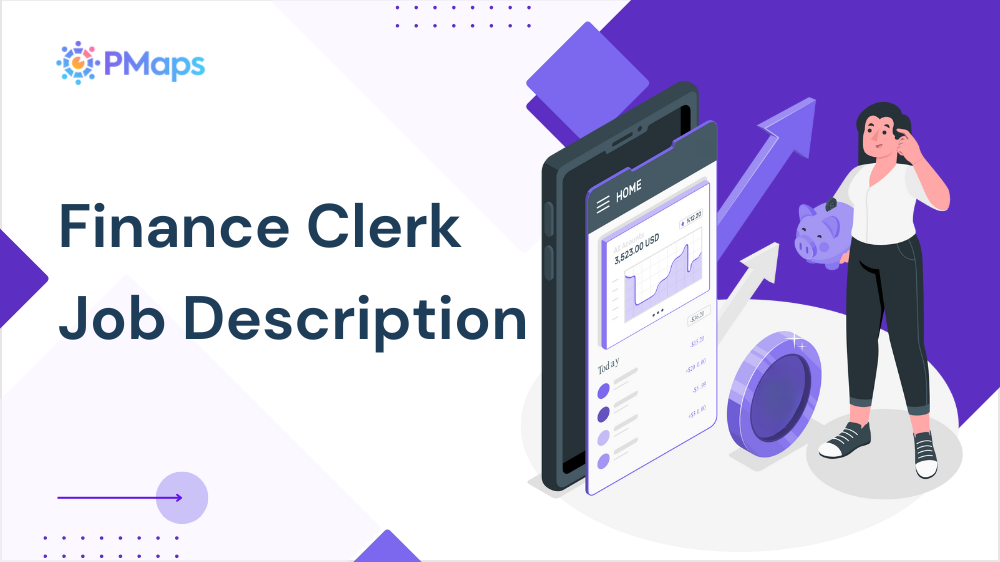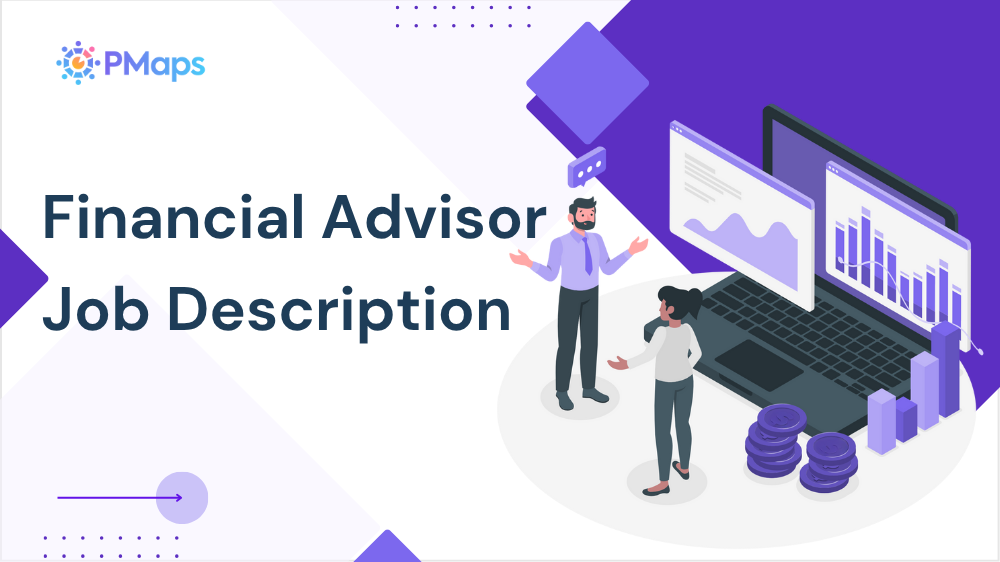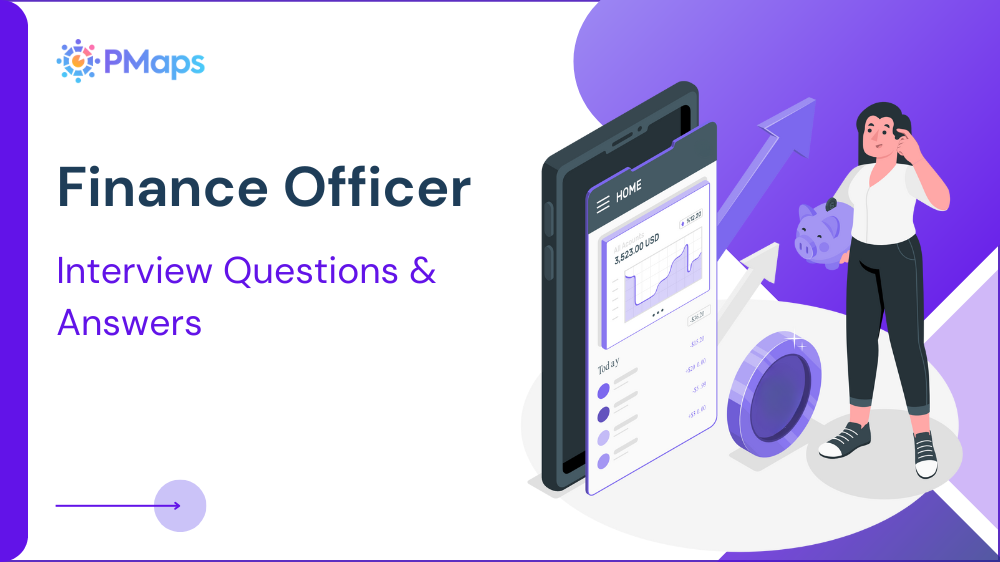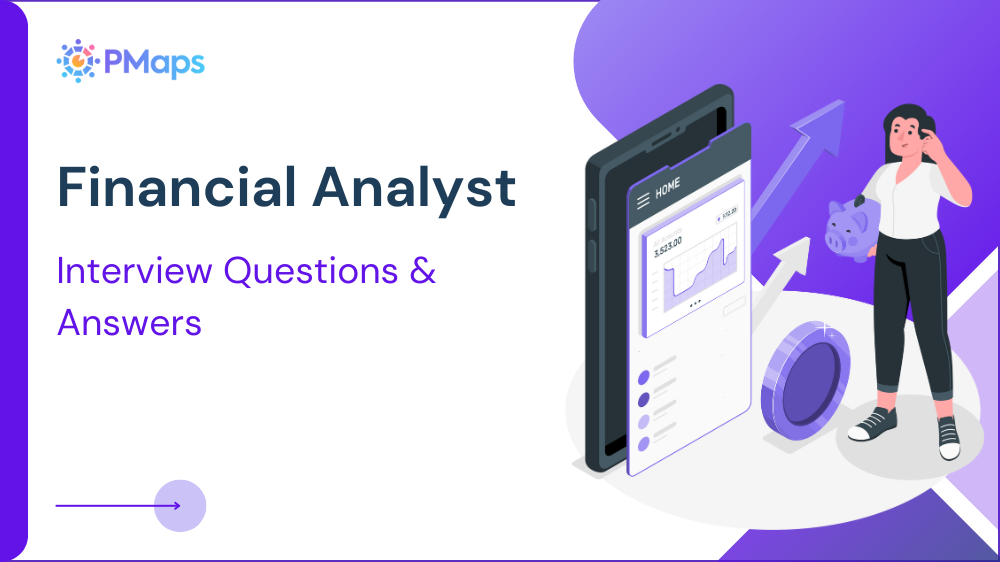
In an industry where trust drives transactions, hiring the right financial advisor can be the difference between retained wealth and lost clientele. According to Cerulli Associates, over 63% of high-net-worth clients base loyalty on personalized advice and transparent planning—not just performance.
That’s why interviewing financial advisors goes far beyond resumes and certifications. It requires a rigorous, values-first, client-fit approach. This guide provides 25 insightful financial advisor interview questions and answers to help hiring teams:
- Assess integrity, client-handling confidence, and advisory skills
- Validate market awareness, planning strategy, and compliance readiness
- Distinguish transactional advisors from those who build long-term financial relationships
Let’s start with the most essential common interview questions for financial advisors to set the groundwork.

General Interview Questions for Financial Advisor
A strong financial advisor is more than a number-cruncher—they’re a listener, educator, and ethical guide. These foundational financial advisor interview questions help uncover whether a candidate understands the advisor's responsibility beyond selling financial products.
Sample Candidate Answer: I chose this profession because I’ve seen the difference sound financial guidance can make in people’s lives. I believe a great advisor combines technical planning with deep trust-building. For every new client, I spend time understanding their personal goals and risk comfort before recommending anything.
Here are five key questions to ask in a financial advisor interview:
1. Why did you choose to become a financial advisor?
What it Assesses: Motivation and career alignment
What to Listen For: Genuine interest in client impact, education, or financial empowerment—not just financial incentives.
2. What do you believe sets a great financial advisor apart from a good one?
What it Assesses: Service philosophy and professional vision
What to Listen For: Emphasis on personalization, transparency, adaptability, and continuous client engagement—not just returns.
3. How would you describe your approach to working with a new client?
What it Assesses: Onboarding process and relationship-building
What to Listen For: Discovery process, needs analysis, communication style, and long-term goal mapping.
4. How do you keep your financial knowledge current?
What it Assesses: Commitment to continuous learning
What to Listen For: Mention of certifications, webinars, market updates, or regulatory news sources like SEBI, CFP Board, or CFA Institute.
5. What role do ethics and compliance play in your day-to-day advisory?
What it Assesses: Integrity and fiduciary mindset
What to Listen For: Clear commitment to client-first principles, data privacy, full disclosure, and policy adherence.
Behavioral Interview Questions for Financial Advisor
Success in financial advisory is built on consistency, client trust, and decision-making under pressure. These financial advisor interview questions uncover how the candidate has behaved in past advisory roles—revealing both interpersonal finesse and professional accountability.
Sample Candidate Answer: During the 2020 market drop, one client panicked about a 25% portfolio dip. I scheduled a face-to-face review, revisited her long-term income goals, showed how allocations were hedged, and mapped the recovery scenarios. She held firm and later thanked me for the reassurance.
Here are five behavioral questions to ask when interviewing a financial advisor, plus a sample response:
1. Tell me about a time you had to help a client through a market downturn. What did you say or do?
What it Assesses: Emotional intelligence and communication during volatility
What to Listen For: Empathy, reassurance without overpromising, anchoring clients to long-term goals, and use of data.
2. Describe a situation where you handled a conflict of interest while advising a client.
What it Assesses: Ethical reasoning and fiduciary responsibility
What to Listen For: Disclosure of conflict, client-first judgment, and action taken to protect client interests.
3. Share an experience where a client did not initially trust your advice. How did you earn their trust?
What it Assesses: Influence and relationship-building
What to Listen For: Use of listening, transparency, education, and consistent follow-through—not persuasion tactics.
4. Tell me about a time you made a mistake with a client portfolio. How did you handle it?
What it Assesses: Accountability and corrective action
What to Listen For: Owning the error, swift correction, proactive communication, and preventive steps implemented afterward.
5. Describe a long-term client relationship you’ve built successfully. What made it work?
What it Assesses: Retention strategy and value delivery
What to Listen For: Proactive touchpoints, tailored advice, lifecycle planning, and multi-generational engagement.
These financial advisor interview questions and answers are designed to distinguish candidates who guide with integrity, communicate during uncertainty, and build trust that outlasts market cycles.
Situational Interview Questions for Financial Advisor
In financial advisory, real value emerges not from reaction—but from readiness. These scenario-based financial advisor interview questions reveal how candidates would handle future-facing challenges involving emotional, regulatory, and market-sensitive situations.
Sample Candidate Answer: If a client nearing retirement insists on a high-risk option, I’d acknowledge their intent but guide them through risk exposure models and how such choices may impact post-retirement liquidity. I’d propose a hybrid alternative and document all communications in our CRM.
Below are four forward-looking questions to ask in a financial advisor interview:
1. A client nearing retirement insists on making a high-risk investment. How do you respond?
What it Assesses: Risk suitability and advisory influence
What to Listen For: Balance between respecting autonomy and offering fact-based caution. Look for clear risk-adjusted recommendations and documentation.
2. A prospective client has unrealistic expectations of double-digit annual returns. How would you handle the conversation?
What it Assesses: Client education and expectation management
What to Listen For: Use of benchmarks, real-case examples, communication tone, and resetting expectations without losing trust.
3. A long-standing client asks for an off-record investment suggestion. What do you do?
What it Assesses: Ethics and regulatory compliance
What to Listen For: Polite but firm refusal, documentation practices, and redirecting toward compliant advisory routes.
4. You’re asked to onboard a client referred by a peer—but notice significant gaps in their current portfolio. What steps do you take?
What it Assesses: Due diligence and professional courage
What to Listen For: Client education, transparent communication about existing flaws, and careful reframing of the advisory relationship.
Technical or Role-Specific Interview Questions for Financial Advisor
Beyond trust and empathy, a successful financial advisor must possess deep knowledge of investment products, regulatory frameworks, and strategic planning techniques. These financial advisor interview questions validate real-world financial planning expertise.
Sample Candidate Answer: I use NaviPlan and Excel-based trackers for projections. I determine asset allocation through a risk profiling form, liquidity needs assessment, and goal timeline review. During reviews, I present year-to-date returns, deviation from benchmarks, and suggested reallocations.
Here are five precise common interview questions for financial advisors that focus on role-critical competencies:
1. What financial planning tools or software are you experienced with?
What it Assesses: Digital capability and reporting structure
What to Listen For: CRM platforms (e.g., Salesforce, Wealthbox), portfolio tools (e.g., Morningstar, eMoney, NaviPlan), and Excel modeling.
2. How do you determine the right asset allocation for a new client?
What it Assesses: Portfolio design thinking
What to Listen For: Client risk profiling, time horizon mapping, goal segmentation, and diversification strategy.
3. Walk me through your typical client review meeting. What data do you present?
What it Assesses: Client reporting and retention strategy
What to Listen For: Performance metrics, comparison to goals, market impact summaries, and transparent discussion of underperformers.
4. How do you stay compliant with changing financial regulations?
What it Assesses: Regulatory awareness and proactive learning
What to Listen For: Reference to SEBI/CFA guidelines, compliance training routines, and familiarity with KYC, AML, or fiduciary standards.
5. What experience do you have with estate, tax, or retirement planning?
What it Assesses: Holistic advisory scope
What to Listen For: Collaboration with tax/legal experts, planning tools used, and knowledge of retirement vehicles (PPF, EPF, NPS, IRAs, 401(k)s).
These financial advisor interview questions and answers help you evaluate whether a candidate can move from basic advice to comprehensive wealth stewardship.

Pro Tips for Interviewing Financial Advisors
Hiring a financial advisor isn’t just about certifications or fluency in financial jargon—it’s about selecting a trusted voice your clients will rely on for years. These advanced interview tips help you uncover credibility, advisory style, and long-term alignment.
Clients lacking financial direction? See how to hire a Financial Advisor who presents plans with confidence and clarity.
1. Align interview flow with the Financial Advisor Job Description
Use the role’s KPIs—like client acquisition, portfolio growth, compliance accuracy, and satisfaction retention—as the baseline for your interview structure. Don’t just test for knowledge; test for impact.
2. Use real-life client simulation questions
Ask candidates to respond to a scripted client scenario, such as a 60-year-old investor nervous about inflation. Assess how they explain asset protection without using jargon and whether their tone builds confidence.
3. Probe for advisory frameworks—not just product familiarity
Great advisors will mention a structured approach: discovery → risk assessment → plan → educate → monitor. Ask them to walk you through this lifecycle using a real client example (anonymized, if needed).
4. Evaluate communication through trust-building cues
Ask: “How do you explain market volatility to a non-finance client?” This tests storytelling, empathy, and whether they simplify or intimidate with complexity.
5. Use a Financial Advisor Assessment Test to validate decision logic
Structured assessments help filter candidates based on real-time judgment, compliance accuracy, and portfolio logic—especially when hiring across industries or without face-to-face interactions.
Conclusion
A great financial advisor isn’t defined by credentials alone—but by their ability to listen, interpret, educate, and protect. In an era of financial uncertainty and growing client skepticism, the advisor you hire today shapes not just portfolios—but lifelong financial confidence.
These financial advisor interview questions and answers offer a structured, client-first way to identify the professionals who don’t just sell—but serve with integrity, insight, and accountability.
To assess advisory acumen and regulatory alignment before hiring, consider using our Financial Advisor Assessment Test or connect with our experts at 8591320212 or assessment@pmaps.in.









